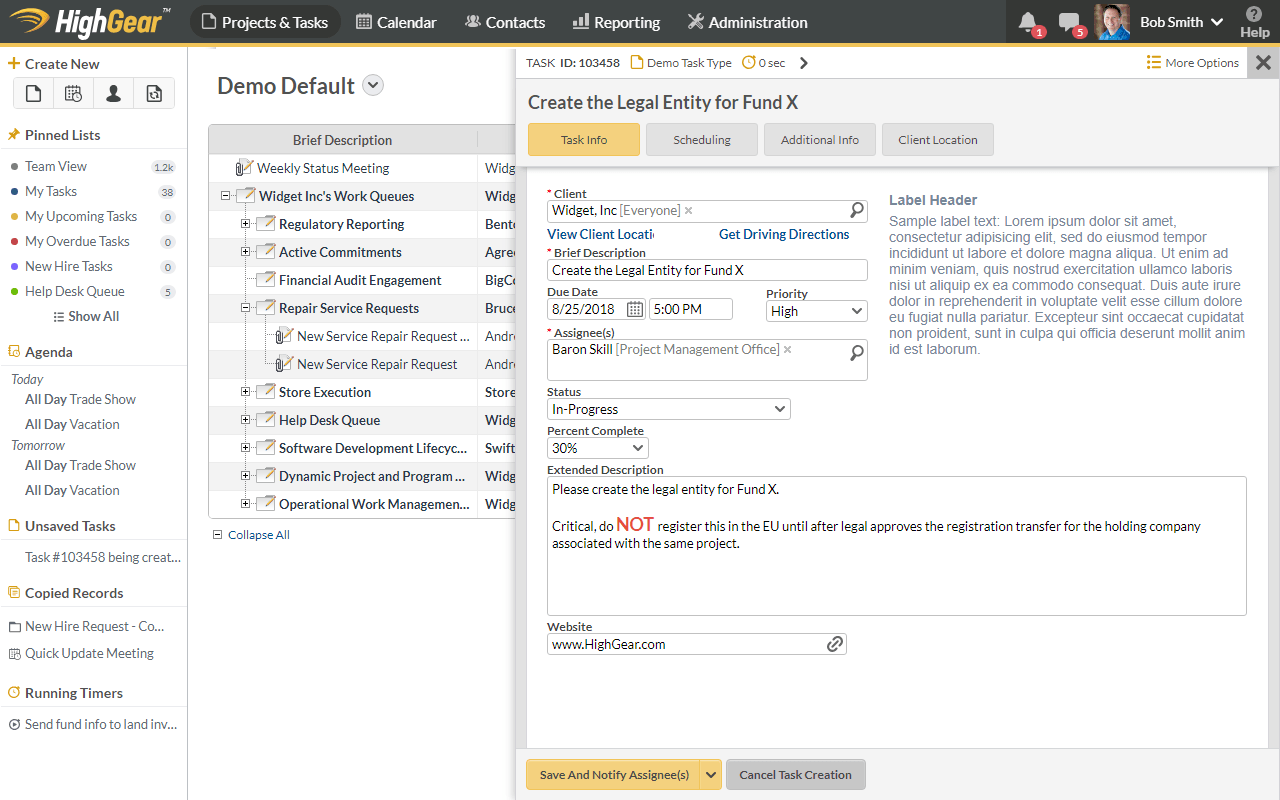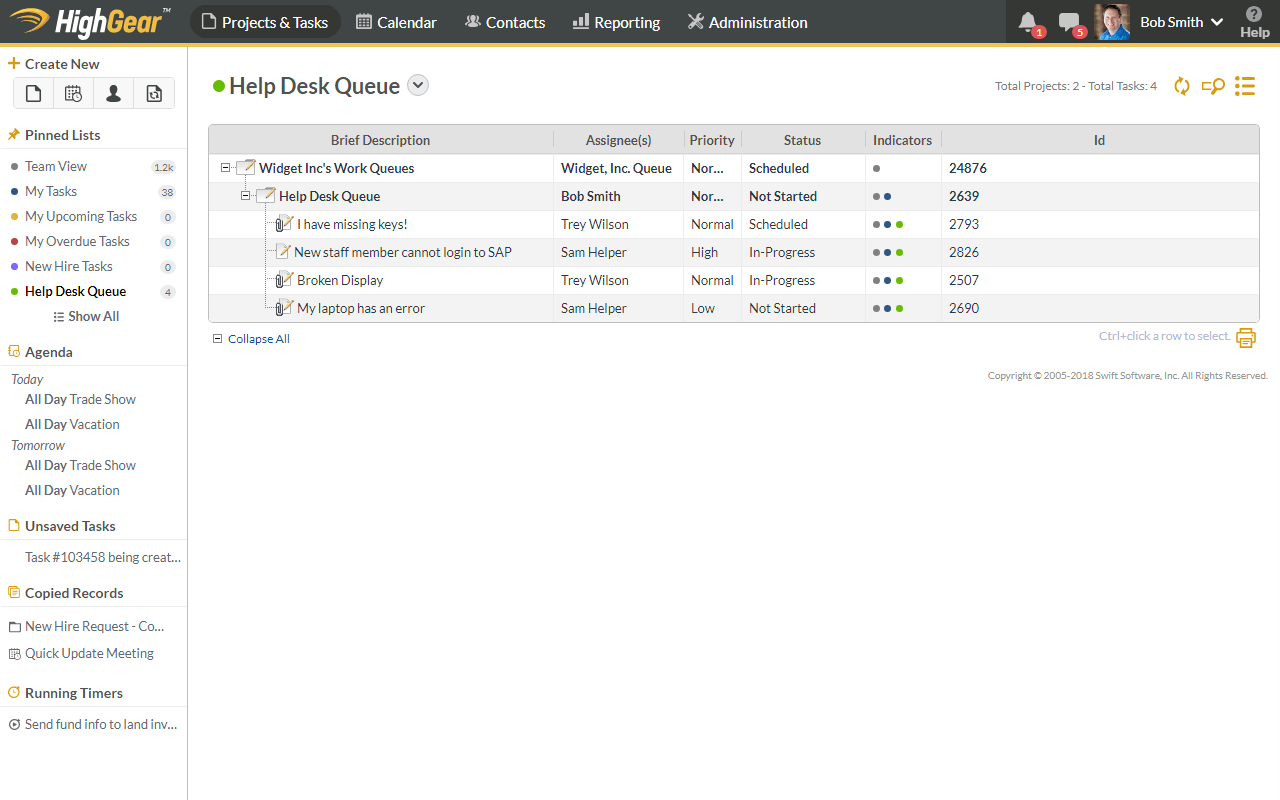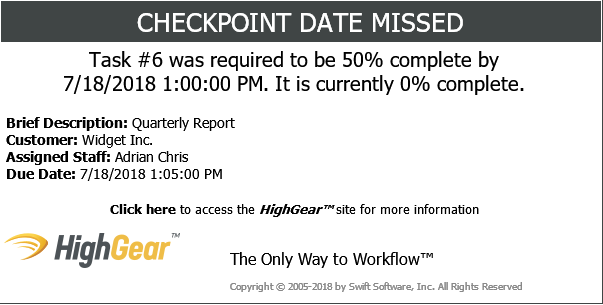When we are looking at deploying tools and solutions in the enterprise, the focus is typically on “What is in this for the organization?”. Major purchases need to be justified, in terms of cost and ROI, the impact on how the organization will work, and the pros and cons. User adoption does form part of the mix, but this is frequently a tacked-on afterthought, and in any event, does anyone really consider what the benefits for the people working with the system will actually be for them?
We’re going to spin this around and look at the benefits employees can enjoy from using an enterprise task management system, and there are many more than these listed here:
Establishes Work Boundaries, Guidance, and the Management of Edge Cases
For both manual and knowledge workers, understanding the practical implications of policy and procedures can be daunting and confusing. Anyone can make mistakes with their work, but the scope for interpretation of rules and the exercise of judgement leaves employees exposed to the finger of blame when things go awry.
Enterprise task management platforms can bake in compliance and policies, establishing ‘guard rails’ within which staff may operate while remaining within the rules. When edge cases or exceptions are encountered, the platform can notify the employee that they are dealing with a non-standard instance, and either guide them through workflow which is triggered by the edge case, or simply escalate the issue automatically to the appropriate person or team.
This reduces the burden of responsibility on the employee, and minimizes the risk of error on their part.

Establishing Work Priorities and Management of Deadlines
Knowing what you need to get done and by when is a basic prerequisite for good time management and personal productivity. We all benefit from a sense of well-being and doing a good job when we are organized and are consistently hitting deadlines. Many people benefit from a positive work outlook and attitude if they feel they are being productive and achieving results. This is a self-perpetuating cycle of success which many personal coaches and worker productivity experts allude to, and helps in the development of staff and empowers them to take on more responsibility and greater challenges.
Busy people understand the pressure and stress associated with constantly juggling priorities and deadlines. Task management platforms which are properly configured will take the sting out of this chore, and save the employee time in trying to figure out what they should be working on next and when they must get stuff done and for who. The result is more time spent on getting work done and less time spent on figuring out the timetable for delivery. More than this, staff can now use facts with their managers about their workload and productivity to justify extending deadlines, or adjusting their workload, rather than simply claiming, “I feel very busy.”

Less Administration and Paperwork
Enterprise task management platforms collect information as work proceeds through them, plus they typically have a digital asset management capability built into them too. This means that all the work documentation flows with the associated work item as it proceeds through workflow. In turn, this means that workers have at their fingertips all the associated work documentation so they can see what has been going on previously with an item before it gets to them, such as a special customer requirement.
In addition, as the employee performs their own work on an item, the system will also automatically collect information, such as timestamps, time spent working, the identity of the employee performing the work, and so on. This means less administration for the employee to worry about, and again this frees people from the frustration associated with non-productive admin tasks that ‘waste’ valuable productivity time.
Less Time Spent on Reporting and ‘Pointless’ Meetings
All of us have spent a significant chunk of our time working on report preparation – this is a fact of life, and most especially for knowledge workers and their managers. Again, for many staff no matter what organization they work for, report preparation is a chore they would rather do without if they had the choice.
A task management system can collect information, almost in real-time, and because of the digital nature of the information collected, this makes it simpler and faster to automate report preparation. Advanced systems will also disseminate the resulting reports automatically, and high-end solutions will perform this task on a ‘need to know’ basis, i.e. it will disclose reporting information and data based on your role and permission level. For instance, a team supervisor may only need to see global performance in simplistic terms, e.g. “10% increase in sales compared to last year”, and they will want granular detail on their own team’s performance, down to individual team member and line item information, but not so on other teams.
This means less time spent on report preparation for everyone, and more time spent on executing on getting stuff done.
A mature solution will also provide visibility into work as it gets done, automatically notifying stakeholders when milestones are reached, as well as providing them with the ability to check up on work status whenever they want. This stops the need for endless status meetings and follow ups as this information is conveyed via the enterprise task management system itself, or via email notifications generated by the system.

More Time for Customers
Dedicated people like to know they are making a difference for their customers, whether they are external customers or internal stakeholders. They have pride in what they do, and delivering quality results and value helps drive motivated staff to ever higher levels of productivity and success.
A common complaint is that staff do not have enough time to spend with customers, and this transcends industry boundaries. Doctors and nurses want to spend more time with their patients, professionals with their clients, sales people with prospects and existing customers, and on and on.
Implementing an enterprise task management solution helps to rid employees of the “Too Much Stuff To Do” tasks which get in the way of doing what is really important – making their customers happy. It is easy to overlook how important our own people are when it comes to improving Customer Experience (CX), as the customer touches our organizations via the impersonal, automated systems we deploy, and perhaps more importantly when they are interacting with our people.
Summary
Enterprise Task Management systems deliver significant benefits for the people who are using them, not just for the enterprise.
Deploying any new system faces user adoption hurdles, however there are major benefits for employees which should be highlighted as part of roll-out.
Enterprise Task Management solutions simplify managing priorities, deadlines, and handling exception cases, while ensuring they remain in compliance with company policies and procedures.
Staff are also able to demonstrate just how busy they are with factual data, rather than relying on ‘feelings’.
Users see a significant reduction in the paperwork burden, as well as time spent on preparing reports and in status meetings. This means more time can be devoted to working on what counts, especially working on deliverables for internal and external customers.
